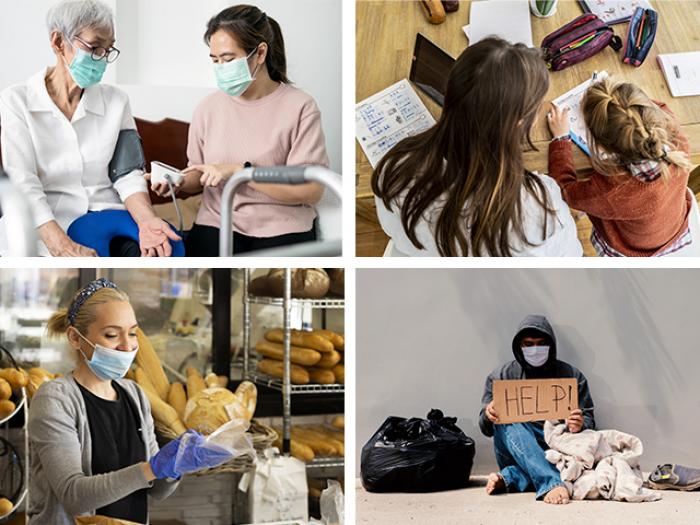
“News of successful COVID-19 vaccine trials bring hope, but the pandemic is far from over. It continues to disproportionately affect vulnerable groups. This includes people with disabilities, older people or migrants and refugees. EU countries did learn from the first wave and try to minimise the impact of the new restrictions on people’s rights. But it is crucial that they look out for vulnerable members of our societies and give them a voice when looking for solutions,” says FRA’s Director Michael O’Flaherty.
FRA’s latest ‘Coronavirus pandemic in the EU – fundamental rights implications: with a focus on social rights’ bulletin brings into sharp relief the importance of social rights. They offer protection across many of the areas that most shape our daily lives.
The bulletin highlights the impact across four areas:
- Healthcare – rising numbers of COVID-19 infections limit access to healthcare and delay other treatments. The pandemic also continues to affect the wellbeing of healthcare staff, particulary their health and safety at work.
- Education – as many schools went back to distance learning, children from disadvantaged backgrounds continue to face challenges following courses online. This exacerbates educational inequalities.
- Work – the economic downturn and rising unemployment across the EU is especially affecting young people and women.
- Housing – homeless people run a higher risk of contracting the virus. They often experience difficulties accessing healthcare. They also face being penalised for breaking curfews and visiting bans in shelters.
The bulletin highlights how the measures to contain the spread of the virus continue to affect people’s social rights. It draws attention to the impact on particular groups, such as people living in institutions, older people, people with disabilities, Roma and Travellers, as well as migrants, asylum seekers and refugees.
This bulletin covers 27 EU countries from 1 September – 31 October 2020.
Follow this news feed: EU





